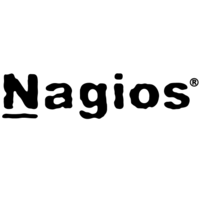Need advice about which tool to choose?Ask the StackShare community!
CopperEgg vs Nagios: What are the differences?
CopperEgg: Cloud monitoring for your servers, websites, processes, and web applications. Continuous visibility and cloud monitoring for all your servers – hosted or private, Linux or Windows. Works great with Amazon EC2, Rackspace, or any public or private cloud; Nagios: Complete monitoring and alerting for servers, switches, applications, and services. Nagios is a host/service/network monitoring program written in C and released under the GNU General Public License.
CopperEgg and Nagios are primarily classified as "Cloud Management" and "Monitoring" tools respectively.
Some of the features offered by CopperEgg are:
- Any Server – Cloud, Virtual, or Physical- Whether your servers are physical, virtual, on-premise, in the cloud, or a combination of these, get the server performance insight you need from any location. Supports Ubuntu, CentOS, Windows and many more.
- CopperEgg cloud monitoring integrates with Chef and supports cloud server monitoring for CentOS, Ubuntu, Windows, RedHat, FreeBSD, MacOSX, and additional Linux varieties.
- Real-Time Updates- Updates every few seconds to provide you with the ability to correct an issue before a catastrophe occurs.
On the other hand, Nagios provides the following key features:
- Monitor your entire IT infrastructure
- Spot problems before they occur
- Know immediately when problems arise
Nagios is an open source tool with 60 GitHub stars and 36 GitHub forks. Here's a link to Nagios's open source repository on GitHub.
- free open source
- modern interface and architecture
- large community
- extendable I knew Nagios for decades but it was really outdated (by its architecture) at some point. That's why Icinga started first as a fork, not with Icinga2 it is completely built from scratch but backward-compatible with Nagios plugins. Now it has reached a state with which I am confident.
Pros of CopperEgg
- Easy setup and instant results2
- Value for money1
Pros of Nagios
- It just works53
- The standard28
- Customizable12
- The Most flexible monitoring system8
- Huge stack of free checks/plugins to choose from1




























